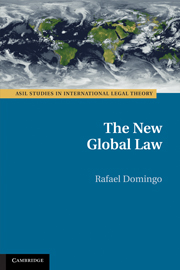Book contents
4 - The Crisis of International Law
Published online by Cambridge University Press: 06 July 2010
Summary
This chapter discusses the reasons for the current crisis in the traditional international law system, considering how the system developed through the centuries to respond to the needs and circumstances of past historical epochs, as well as how the system is no longer capable of meeting the unique developments and needs of life in the Third Millennium. We consider the problems of a state-based international law that, rather than focusing on the prime actor and focus of the law, the human person and his inherent dignity, concentrates on and gives enormous power to the artificial construct of the nation-state and its animating principles of sovereignty and overdependence on territoriality. This inborn defect in the system of focusing on the nation-state was imported wholesale into the United Nations system, ultimately rendering it incapable of meeting the basic security, social, and economic needs of our world, which longs for a true global community of persons. The nation-state paradigm, as well as the United Nations system, needs to be essentially and profoundly reformed. New institutions having real global power need to be set up to meet the requirements of our globalized world, especially regarding defending human rights from the incessant assault from both state and nonstate actors.
- Type
- Chapter
- Information
- The New Global Law , pp. 53 - 97Publisher: Cambridge University PressPrint publication year: 2010



